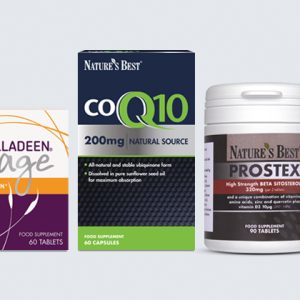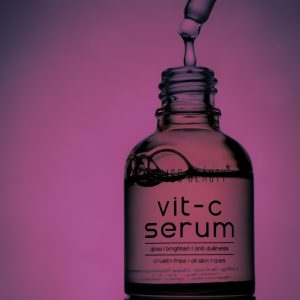Amino acids play primary roles both as building blocks of proteins and as intermediates in metabolism. They bond together to make long chains. Those long chains are also called proteins. The 20 amino acids that are found within proteins convey a wide array of chemical versatility. Each of them has its specific characteristics, which provides a unique role in protein structure. Amino acids are used in every cell of your body to build the proteins you need to survive. They help support muscle strength and function through the process of stimulating protein synthesis.
Scientists has discovered over 50 amino acids, however only 20 are used to make proteins in your body. And although all 20 of these are important for your skin and health, only 10 are classified as essential. The other ten can be synthesized by an adult body. These essential amino acids are:
These aminos are required in the diet. Humans, do not have all the the enzymes necessary for the formation of complex molecules of all of the building blocks.
Nonessential Amino Acids: Alanine, Asparagine, Aspartic Acid, Glutamic Acid.
Conditional Amino Acids: Arginine (essential in children, not in adults), Ornithine, Cysteine, Glutamine, Glycine, Proline, Serine, and Tyrosine.
The human body can manufacturer 10 of the 20 amino acids. However, All are required for body growth. Since essentials cannot be synthesized within the body, they have to be consumed by food. Animal products, including meat, poultry, seafood and dairy products, contain all of the essential acids.
Failure to get enough of even 1 of the 10 essential, results in degeneration of the body’s proteins, muscle, etc, and can affect your physical and mental health, to obtain the one essential that is needed. Unlike fat and starch, the human body does not store excess amino acids for later use, they must be in food each day.
The 10 aminos that our body can produce are alanine, asparagine, aspartic acid, cysteine, glutamic acid, glutamine, glycine, proline, serine and tyrosine. Tyrosine is produced from phenylalanine: phenylalanine is an essential acid, which the body cannot make it so it is essential to obtain it in food. If the diet is deficient in phenylalanine, tyrosine will be needed as well.
The importance of amino acids for human well-being is on the increase.
Many doctors have now confirmed that a supply of amino acids have positive effects. Countless factors are working against our bodies from receiving a complete and balanced supply of essential amino’s. Among them are the pollution caused by the burning of fossil-fuels, hormones fed to cattle, the extreme use of fertilizers and pesticides in agriculture, even smoking and drinking, can prevent our bodies from fully absorbing what we eat. And even worse, is the amount of nutrition lost from our food through processing before we actually eat it. By providing the body with maximum nutrition, amino acids help replace what is lost or stolen, and promotes well-being and vitality.
Older people are more prone to suffering from malnutrition. If the body lacks the minimum energy and nutrients required, it cannot carry out its bodily and mental functions. Without the necessary vitamins, proteins (amino acids), trace elements and minerals, there is a risk of frailty, weakness, weariness and fatigue, and metabolism disorders which can have significant consequences.
Almost every disease caused by social development and organization, is the result of imbalances in our metabolism. The entire chain of aminos in the body is jointly responsible for attaining a balanced metabolism. The body must be supplied with more, partly by protein synthesis, partially through the diet or consumption of appropriate dietary supplements.
The entire chain must be absolute and maintained in the correct combination. If one or more of the aminos are not obtainable in sufficient amounts, the production of protein is debilitated and the metabolism may be restricted of it’s function. Muscle and other protein structures may be dismantled to obtain the one amino that is needed. Unlike lipid and starch the human body does not store excess aminos for later use.
This applies to all people, young and old alike. Young people can be affected by the negative consequences of a limited supply of nutrients. These include weight problems, hair loss, skin problems, sleep disorders, mood swings, erectile disorders, arthritis, diabetes, cardiovascular imbalance (high cholesterol levels and blood pressure), even menopausal problems.
The good new is, Pearl Powder contains all 10 essential acids required for the human body, and it’s highly absorbable to get all the essentials needed to stay radiantly healthy and live longer. Not only that, it’s wide array of vitamins, minerals, antioxidants, and nutritional values regenerates new cell growth, to revive aging skin.
It is Essential to your health and skin, to restore those lost amino acids back into your body so you can live a healthy, happy long life. Without them, it can age you fast and hustle you into an early grave.
Life Doesn’t Slow Down. Neither Should You!









